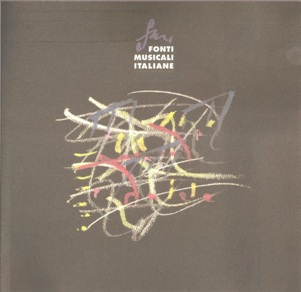Le Melodie popolari del fondo Righi nella Biblioteca Civica di Verona
Abstract
Ettore Scipione Righi (Verona 1833-1894), avvocato di professione, convinto sostenitore dell’unità italiana, animato da molteplici interessi culturali, dall’archeologia alla letteratura, dedicò particolare cura, sin da studente, alla ricerca folklorica: canti popolari (le prime trascrizioni risalgono al 1852), fiabe, proverbi, modi di dire. Tutto il materiale da lui accumulato in anni di ricerca (fra cui otto fascicoli di canti popolari veronesi) è conservato presso la Biblioteca Civica di Verona ed è in gran parte inedito.
Al fondo Righi appartengono anche quattro fascicoletti pentagrammati di 16 pagine ciascuno contenenti trascrizioni musicali, intitolati Melodie popolari, per un totale di 122 testi musicali. La loro grafia non corrisponde in alcun modo a quella del Righi: vani finora i tentativi per identificarne l’autore, un esperto musicista indubbiamente, che tuttavia non fa alcuna differenza fra le autentiche melodie popolari, gli inni patriottici e alcune melodie d’area colta. Spogliando dall’elenco inni e melodie forestiere, resta all’incirca una novantina di autentiche melodie popolari (94, per l’esattezza), per la maggior parte appartenenti all’area veronese e tutte inedite. Una lettera di un corrispondente di Righi ci consente di datarle a epoca anteriore al 1873.
In ogni caso, quale che sia l’autore di queste trascrizioni musicali, il solo fatto che la loro redazione risalga in massima parte al settimo decennio del xix secolo, fa di esse, in assoluto, una delle testimonianze più antiche di musiche popolari delle regioni dell’Italia settentrionale e soprattutto una delle più cospicue per quantità e varietà di testi, ove si consideri che le raccolte edite contenenti i primi esempi di trascrizioni di musiche popolari di quest’area geografica, salvo pochissime eccezioni, sono di qualche decennio posteriori, e che il numero di trascrizioni che esse contengono rispetto a quello dei quattro fascicoli del fondo Righi, è di gran lunga inferiore.
******
The Folk Songs of the Righi fondo in the Municipal Library of Verona
Ever since he was a student, Ettore Scipione Righi (Verona 1833-1894), barrister by profession, a strong supporter of Italian unity, animated by multiple cultural interests – from archeology to literature – devoted particular attention to folkloric research: folk songs (the first transcriptions go back to 1852), tales, proverbs, sayings and adages. All the material he collected in years of research (including eight folders of Veronese folk songs) is preserved in the Municipal Library of Verona and is for the most part unpublished.
The Righi fondo also includes four small folders containing pages with printed staves (each of 16 pages) on which musical transcriptions entitledMelodie popolari (Folk Songs) had been scored, for a total of 122 musical texts. The handwriting is in no way similar to that of Righi and up to now all attempts to identify the author have been unsuccessful: without doubt an expert musician, but one who did not differentiate between authentic folk songs, patriotic anthems and the occasional more elaborated melody. After excluding from the list all foreign songs and anthems, approximately ninety authentic folk songs remain (94, to be exact), for the most part from the Verona area and all unpublished. A letter from a correspondent of Righi enables dating them prior to 1873.
In any case, whoever the author of the musical transcriptions may be, the sole fact that their drafting dates back for the most part to the seventh decade of the nineteenth century makes them definitely one of the oldest testimonials of folk songs of the northern regions of Italy and above all one of the most outstanding for quantity and variety of texts, considering that the published collections containing the first examples of transcriptions of folk songs of this geographical area are (with very few exceptions) of a few decades later and that the number of transcriptions included in them are by far inferior to those in the four folders of the Righi fondo.
Published
Issue
Section
License
© CIDIM
Tutti i diritti riservati


